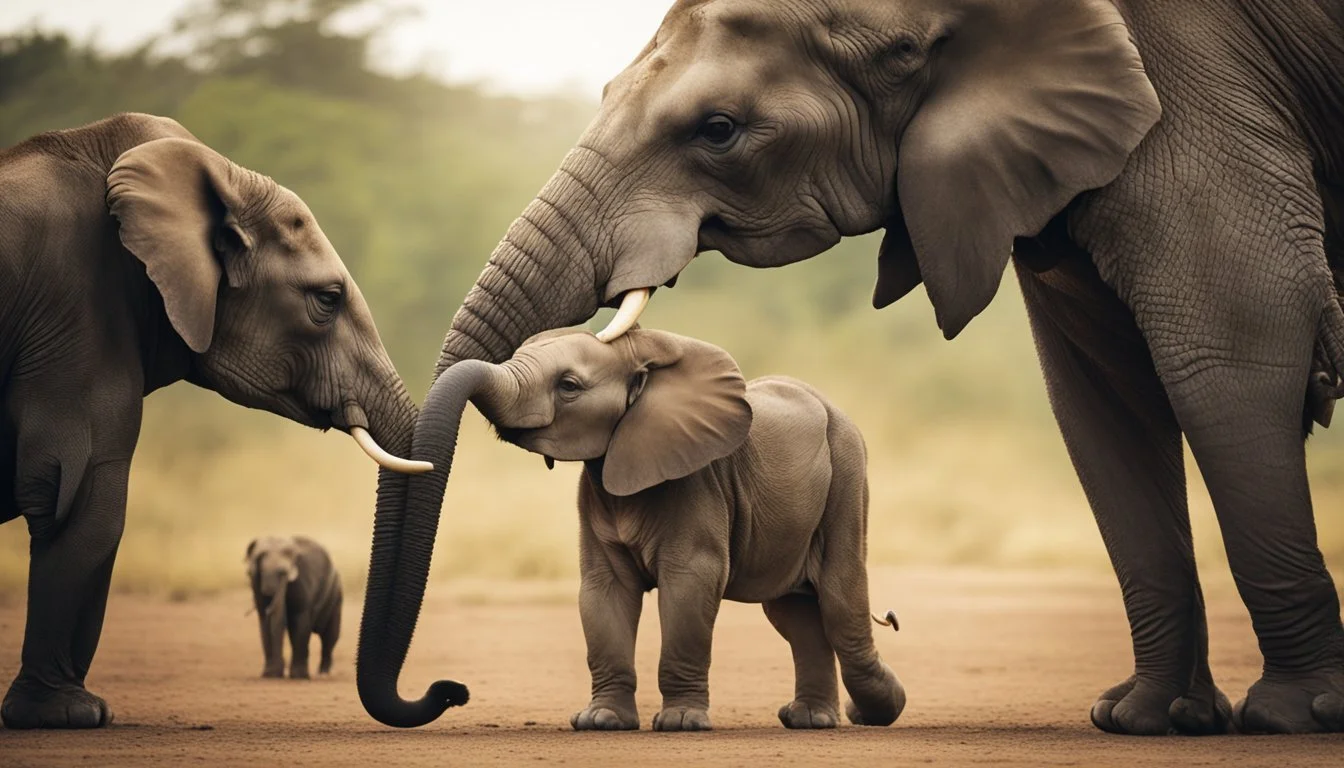7 Documentaries That Capture the Essence of Platonic Love
Exploring Friendship's Depth on Screen
Documentaries have a unique power to explore the complexities of human relationships. They offer intimate glimpses into real-life connections, providing viewers with authentic portrayals of love in its various forms. Among these, platonic love stands out as a profound and often underappreciated type of bond.
These seven documentaries delve into the essence of platonic love, showcasing its depth and significance in human interactions. From lifelong friendships to mentorship relationships, each film captures the nuances of non-romantic connections that shape our lives. Viewers can expect to gain new perspectives on the importance of platonic love and its impact on personal growth and societal dynamics.
1) Won't You Be My Neighbor? (2018)
This documentary explores the life and impact of Fred Rogers, the beloved host of "Mister Rogers' Neighborhood." Directed by Morgan Neville, the film showcases Rogers' commitment to kindness and understanding.
The documentary features archival footage and interviews with friends and family. It highlights Rogers' unique approach to children's television, emphasizing emotional intelligence and self-worth.
One memorable scene shows Rogers testifying before the U.S. Senate in 1969. His heartfelt plea for PBS funding demonstrates his genuine care for children's education and well-being.
"Won't You Be My Neighbor?" reveals the depth of Rogers' impact on generations of viewers. It portrays his unwavering belief in the importance of love and acceptance in a child's development.
The film also touches on Rogers' ability to address complex topics with young audiences. His gentle approach to difficult subjects like death and divorce set him apart in children's programming.
More information on Won't You Be My Neighbor?
2) Friends: Behind Closed Doors (2019)
This documentary explores the global phenomenon of the beloved sitcom "Friends". It offers insights into how the show about six young adults living in New York City became a cultural touchstone.
The film features interviews with the main cast members, including Jennifer Aniston, Courteney Cox, Lisa Kudrow, Matt LeBlanc, Matthew Perry, and David Schwimmer. It delves into their experiences and perspectives on the show's success.
"Friends: Behind Closed Doors" examines the sitcom's enduring popularity and its impact on popular culture. It provides a behind-the-scenes look at the creation and production of the series.
The documentary also highlights the chemistry between the cast members and how their real-life friendships contributed to the show's authenticity. It covers memorable moments, fan-favorite episodes, and the show's lasting legacy.
Viewers can gain a deeper appreciation for the work that went into making "Friends" such a hit. The film offers a nostalgic journey for fans and newcomers alike.
3) Best of Friends (2007)
"Best of Friends" offers an intimate look at enduring platonic bonds. This documentary follows three lifelong friends as they navigate the ups and downs of their decades-long relationship.
The film captures candid moments of laughter, support, and occasional conflict between the trio. It explores how their friendship has evolved from childhood through major life milestones.
Director Sarah Thompson skillfully weaves together archival footage and present-day interviews. This approach provides a rich historical context for the depth of the friends' connection.
"Best of Friends" stands out for its honest portrayal of platonic love. It showcases the strength and vulnerability inherent in close, non-romantic relationships.
Viewers witness the friends' unwavering support for each other through career changes, family challenges, and personal setbacks. The documentary highlights how their bond has remained a constant source of comfort and joy.
More information on "Best of Friends" (IMDB)
4) Our Souls at Night
Our Souls at Night (2017) is a touching exploration of companionship in later life. The film stars Robert Redford and Jane Fonda as two widowed neighbors who form a connection.
Set in a small Colorado town, the story follows Addie Moore and Louis Waters as they develop a unique relationship. They spend nights together, talking and sharing their lives, without romantic involvement.
The movie delves into themes of loneliness, aging, and the human need for connection. It portrays the complexities of family relationships and the judgments of a small community.
Directed by Ritesh Batra, the film is based on Kent Haruf's novel of the same name. It presents a realistic depiction of growing older, challenging stereotypes about aging in cinema.
Our Souls at Night showcases the chemistry between Redford and Fonda, reuniting them on screen after several decades. Their performances bring depth and authenticity to the characters.
The film's gentle pacing and intimate conversations create a poignant atmosphere. It reminds viewers that meaningful connections can form at any stage of life.
5) The Lunchbox (2013)
The Lunchbox presents a unique exploration of platonic love in the bustling city of Mumbai. This Indian film tells the story of two strangers who form an unexpected connection through a mix-up in the city's lunchbox delivery system.
Ila, a lonely housewife, and Saajan, a widowed office worker, begin exchanging notes through the lunchboxes. Their correspondence evolves into a deep, meaningful relationship despite never meeting in person.
The film delves into the power of emotional intimacy and shared experiences, showcasing how platonic love can develop through written words alone. It highlights the profound impact of human connection, even when physical proximity is absent.
Through its nuanced portrayal of the characters' inner lives, The Lunchbox demonstrates how platonic relationships can provide solace, understanding, and personal growth. The film's subtle approach to depicting this bond resonates with viewers, offering a poignant reflection on the nature of non-romantic love.
More information about The Lunchbox
6) Pride
"Pride" (2014) is a heartwarming documentary that explores the unlikely alliance between LGBTQ+ activists and Welsh miners during the 1984-1985 miners' strike in the UK. The film showcases the power of solidarity and mutual support between two seemingly disparate groups.
Director Matthew Warchus skillfully weaves together historical footage and dramatized scenes to bring this remarkable story to life. The documentary highlights how the Lesbians and Gays Support the Miners (LGSM) group raised funds and provided support for the striking miners and their families.
Through interviews with key figures and archival material, "Pride" illustrates how this partnership challenged stereotypes and fostered understanding between communities. The film demonstrates that platonic love can transcend societal boundaries and bring about positive change.
"Pride" serves as a testament to the strength of human connection and the impact of standing together in the face of adversity. It reminds viewers that compassion and solidarity can forge lasting bonds between diverse groups of people.
More information on "Pride" (2014)
7) The Straight Story (1999)
David Lynch's The Straight Story offers a unique portrayal of platonic love through the journey of Alvin Straight. Based on true events, the film follows 73-year-old Alvin as he travels 240 miles on a lawn mower to visit his estranged brother.
The movie showcases the deep bond between siblings, even when separated by time and distance. Alvin's determination to reconnect with his brother Lyle demonstrates the enduring nature of familial love.
Throughout his journey, Alvin encounters various individuals who show him kindness and support. These brief but meaningful interactions highlight the power of human connection and compassion between strangers.
The Straight Story emphasizes the importance of forgiveness and reconciliation in platonic relationships. Alvin's pilgrimage becomes a testament to the strength of brotherly love and the desire to mend broken ties.
Lynch's gentle approach to storytelling allows the audience to reflect on the quiet moments of companionship and understanding that define platonic love in its purest form.
More information about The Straight Story
Understanding Platonic Love
Platonic love represents a deep, non-romantic bond between individuals based on mutual respect, shared values, and intellectual connection. This concept has evolved over time and varies across cultures.
Definition and Origins
Platonic love derives its name from the ancient Greek philosopher Plato. He described it as a pure, spiritual love free from physical desire. In modern usage, platonic love refers to a close, non-sexual relationship between friends.
This type of love emphasizes emotional and intellectual connections. It can exist between people of any gender or sexual orientation. Platonic relationships often involve deep trust, support, and understanding.
Key features of platonic love include:
Absence of romantic or sexual attraction
Strong emotional bond
Shared interests and values
Mutual respect and admiration
Cultural and Historical Perspectives
Different cultures have varying perspectives on platonic love. In ancient Greece, it was highly valued as a form of spiritual connection. Medieval European literature often portrayed idealized platonic relationships between knights and ladies.
In some Eastern cultures, platonic love is seen as a path to spiritual growth. Japanese concepts like "koi no yokan" describe a platonic connection that may evolve into romantic love.
Modern Western society sometimes struggles to recognize deep platonic bonds, often assuming romantic intentions. However, there's growing awareness of the importance of platonic relationships in personal well-being and social support systems.
The Role of Platonic Love in Modern Society
Platonic love continues to shape interpersonal dynamics and cultural narratives in contemporary society. It influences how people form and maintain non-romantic connections, while also challenging traditional relationship paradigms.
Impact on Personal Relationships
Platonic love fosters deep, meaningful bonds without romantic or sexual elements. These relationships provide emotional support, companionship, and personal growth opportunities. Friends, mentors, and colleagues often exemplify platonic love through mutual respect and shared experiences.
In an era of increased social isolation, platonic relationships offer crucial social connections. They help combat loneliness and promote mental well-being. Many people find fulfillment in these non-romantic partnerships, valuing them equally to romantic relationships.
Platonic love also redefines family structures. Chosen families, formed through strong platonic bonds, challenge traditional notions of kinship. This shift particularly resonates with LGBTQ+ communities and individuals seeking alternative support systems.
Representation in Media
Media portrayals of platonic love have evolved, reflecting changing societal attitudes. Films, TV shows, and books increasingly depict strong platonic relationships as central to character development and plot progression.
Popular culture now celebrates "bromances" and female friendships, highlighting the depth and importance of non-romantic bonds. These representations normalize platonic love and challenge the notion that romantic relationships are the ultimate goal.
Documentaries explore various facets of platonic love, from lifelong friendships to platonic co-parenting arrangements. These real-life stories showcase the diversity and significance of platonic relationships in modern society.
Social media platforms have become spaces for sharing and celebrating platonic love. Users openly express appreciation for friends and non-romantic partners, reinforcing the value of these connections in daily life.







